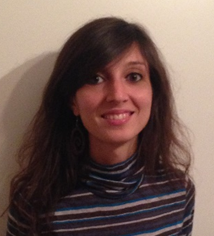Invited Speaker

Dr. Simona Di Fraia
University of Napoli “Parthenope”, ItalySpeech Title: Energy Efficiency in Wastewater Treatment
Abstract: Wastewater treatment is high energy-consuming, especially in terms of electricity demand that accounts for about 90% of the total energy consumption. In European countries, it is estimated to account for 1% of the total electricity consumption. For this reason, energy efficiency in wastewater treatment is attracting an increasing attention of the scientific community.
In order to analyze energy consumption and to identify some measures to improve the efficiency, a methodology similar to that proposed for energy audits of civil buildings and industrial applications is used for WasteWater Treatment Plants (WWTPs) as well. Energy consumption is influenced by several factors, such as size of the plant, stages of treatment, country. From the analysis of energy consumption in different WWTPs some general conclusions can be drawn up:
- electricity is one of the highest operating costs, roughly 25-30%;
- the specific electricity consumption is inversely proportional to the size of the plant;
- the highest energy intensive processes are aeration in the biological stage, sludge treatment and pumping, with an increase up to 50% in case of advanced biological treatment for nutrients removal.
Several strategies for energy saving have been identified, such as optimization of mechanical equipment, installation of automated control systems for regulation of aeration and modulation of pumps speed, and replacement of blowers with fine bubble aeration systems. Together with these measures, energy recovery from wastewater and its by-products and the use of other renewable energy sources should be promoted, in order to enhance sustainability of the overall process.
The aim of the presentation is to give an overview of energy demand and strategies to improve the energy efficiency in WWTPs, as well as the available indicators for the evaluation of energy performance of such users.
